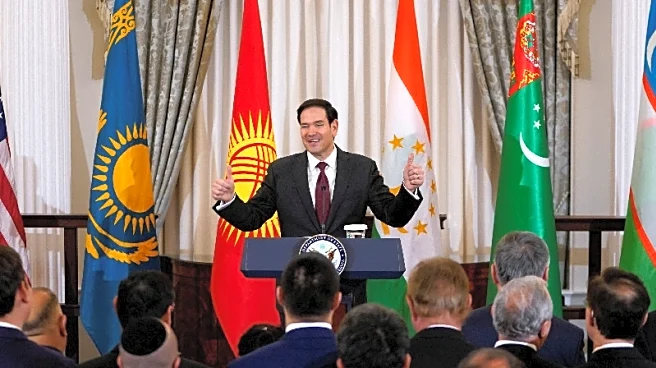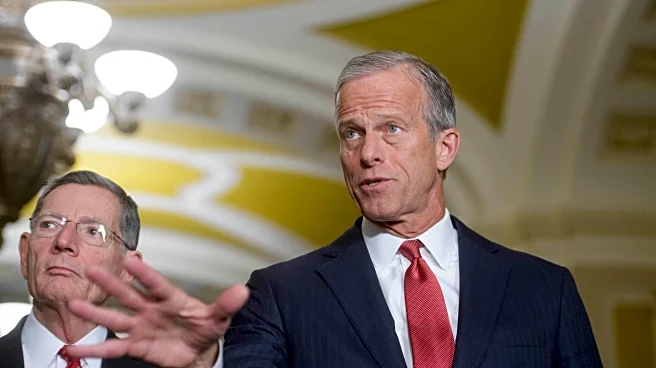By Simon Lewis
WASHINGTON (Reuters) -U.S. Secretary of State Marco Rubio said on Wednesday he planned to visit the five Central Asian countries in the coming year, as he met their foreign ministers as part
of a Trump administration charm offensive aimed at the resource-rich region.
The presidents of Kazakhstan, Kyrgyzstan, Tajikistan, Turkmenistan and Uzbekistan are set to meet U.S. President Donald Trump in Washington on Thursday for talks that are likely to include discussions of rare earths minerals and other resources in the Central Asian nations.
Rubio told a reception at the State Department that U.S. interests and those of the Central Asian states were aligned when it comes to working together to develop the countries' natural resources.
"You are looking to take the resources ... that God has blessed your nations with, and turn them into responsible development that allow you to diversify your economies," Rubio said.
“I personally intend to visit in the coming year," he added.
"All five (countries)," he said, "so I know it would probably be a week-long trip. So we’ve got to work on that and make that happen together.”
Rich in minerals and energy, the five overwhelmingly Muslim countries of Central Asia remain closely tied economically to Russia, which ruled the region as part of the Soviet Union until 1991. Neighboring China also enjoys significant commercial influence.
Deputy Secretary of State Christopher Landau, who spoke before Rubio, said Trump had invited the five leaders to Washington as part of a personal push by the president to engage more actively with the region.
Landau and Sergio Gor, the U.S. ambassador to India and Trump's special envoy to Central Asia, visited Kazakhstan and Uzbekistan last week to prepare agreements to be announced during the leaders' visit.
"The opportunities are amazing - business opportunities. Many ways to partner there," Landau said.
Senator James Risch, a Republican, who also spoke at the reception, announced he would introduce a bill to Congress this week aimed at repealing the Jackson–Vanik trade rules introduced during the Cold War era that restrict U.S. trade with non-market economies.
(Reporting by Simon Lewis; additional reporting by Felix Light; Editing by Leslie Adler and Sonali Paul)











